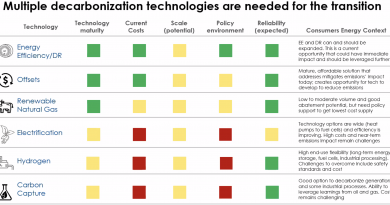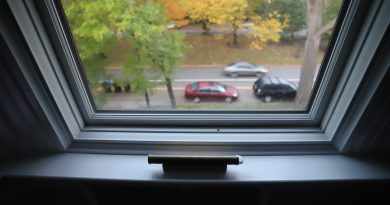Monopolies Kill My Dreams Of Better Things
Today a DTE representative uttered probably the least inspiring words that one can ever hear in a volunteer workgroup meeting. “We looked into that,” Mr. Randazzo said, “and we determined that it would be too expensive.”
The place was Walker-Miller Energy and the meeting was the Green Task Force. And the subject was on-bill financing, a clever way to finance energy retrofits at minimal cost to the consumer. By tacking a small charge onto every bill, it is possible to fund the cost of even pretty invasive energy retrofits. You want to replace all of your old windows? Done. Spray foam the rim joist? No problem. Replacing the decking on a leaky roof and overroofing that bad boy with six inches of rigid foam? Hey, why not? Because of how utility regulation works, this typically has to be enabled by state statute, unless a bit of regulatory arbitrage is an option. ACEEE has studied this extensively, and it’s been implemented successfully in a number of jurisdictions. There are many ways to skin this cat.
It’s gravy on the finance side because finance pros love predictability and smoother curves. It’s gravy on the demand planning side because energy efficiency smooths out peaks, the biggest problem facing utilities. And it’s gravy on the consumer side because, of course, it saves families money. Energy waste means that money is quite literally going up in smoke.
Win, win, win! And yet.
My reply, which I tried to keep good-natured but which he clearly didn’t like, was that, “DTE has over a billion dollars in profits, on which it pays no tax. So, with all due respect, it seems like you’re going to get very little sympathy if you keep making that argument.”
“Well, we’re a big company,” he replied gruffly, “and we have a lot of obligations.”
Indeed– one major obligation being providing a healthy return to shareholders, not just going for flimsy, short-term options. (I’ll never forget the facilities engineer who ranted to me about how climate change is a liberal lie at a meeting for DTE’s Integrated Resource Plan.) I tried for a quick save by segueing into a brief explanation of how these programs can be scaled and developed into citywide, regionwide, or statewide initiatives that make use of a range of different types of partnerships.
Utilities are meanwhile stuck in the olden days of their complete lack of imagination. (Yet, while they say $2 million is too expensive to pilot an on-bill financing program, they are totally cool with spending millions to lobby against solar power). I’m not in the business of saying no, I’m in the business of saying “yes.” Or, “yes– and how can we do that?”
Needless to say, I don’t think he was too happy.
So it goes, right?



